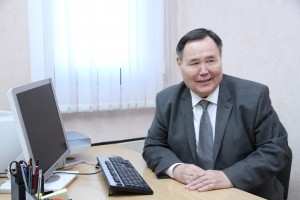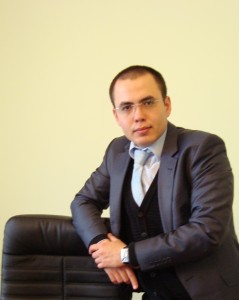This year marks the 65th anniversary of the adoption of the UN’s Universal Declaration of Human Rights on Dec. 10, 1948. This declaration became the first official international document in the field of human rights and freedom.
The document consists of 30 articles and covers almost all fundamental aspects of human rights. Kazakhstan, having become an independent state in 1991 and having joined the UN in 1992, made substantial efforts to incorporate these universally recognized human rights into its founding documents. Almost all the ideas of the declaration and its subsequent covenants and conventions have received legal mandate in the Constitution and legislation.
Pursuant to the provisions of the declaration, Kazakhstan has joined and executed about 60 multilateral, regional and bilateral treaties and agreements on human rights, it has adopted no less than 50 codes, laws and other rights/freedom related acts.
Article 3 of the declaration states that “everyone shall have the right to life, freedom and personal inviolability.” Kazakhstan guarantees citizens the right to life and has an active policy of ensuring this right by reducing mortality, including maternal and child mortality, mortality on the roads and work related and crime related mortality as well. Kazakhstan also stands for the phased abolition of the death penalty. It should be emphasised that the death penalty has been absent from Kazakhstan for quite some time. From 2010 to 2012, the death rate dropped by 37 percent. Comparing 2012 to 2011, mortality decreased by 18.7 percent.
Freedom of speech and expression as a human right is enshrined in article 19 of the declaration: “Everyone shall have the right to freedom of opinion and free expression.” As it is known, freedom of speech can be realised by establishing the proper conditions. That’s why as of January 1, 2012, 2,740 media outlets were operating in the country, of which, 439 (16 percent) were state owned, non-state media outlets totalled 2,301 (84 percent). 91 percent of media outlets are newspapers (1,662) and magazines (832), 8.5 percent are electronic outlets; there are 50 television stations, 43 radio stations, 134 cable television operators and 6 satellite broadcasters; 0.5 percent of these are news agencies (13). Citizens have broad discretion to exercise this freedom individually; they control most of the information flow in the country.
Article 18 of the Declaration provides every person with “the right to freedom of conscience and religion. This right includes freedom to change one’s religion or beliefs and the freedom to manifest one’s own religion or belief, either alone or in a community in regards to public or private doctrine, worship and performing religious and ritual ceremonies.” All religious communities in the republic were re-registered under a 2011 law titled “On Religious Activities and Religious Associations,” There were 3,088 religious associations representing 17 denominations.
In accordance with Article 21 of the declaration, “everyone shall have the right to govern their country, directly or through freely chosen representatives.” During the presidential election (in 2011) more than 8.279 million people exercised their right to vote. The right to vote in the parliamentary elections (2012) was exercised by more than 7,018,900 citizens. In August 2013, in all 14 regions of Kazakhstan, 2,457 akims (mayors) of villages, rural districts and towns were elected to serve in posts governing more than 7 million Kazakh citizens. The competition was quite fierce. In this election, 6,738 candidates participated. That is more than 2 candidates per each akim position.
“Everyone shall have the right to peacefully assemble,” says article 20 of the declaration. Peaceful meetings and gatherings in the country are regulated by the law titled “On Organising and Holding Peaceful Meetings, Rallies, Marches, Pickets and Demonstrations.” From 2010 to Sept. 30, 1,222 different campaigns were held. They were attended by more than 250,000 people.
“Everyone, according to article eight of the declaration, shall have the right to effective legal rehabilitation by competent national courts when fundamental rights granted by the constitution or law are violated.” Almost 400 Kazakh courts have been involved in making this right a reality. These courts consider civil, administrative and criminal cases. Their effectiveness can be seen in their handling of civil cases. In 2010, national courts considered 549,212 civil cases and in 2011 the number was 582,491, in 2012, the number of civil cases reached 597,307. The growth of appeals in civil cases suggests constant growth of the population’s trust in the judiciary. In order to further improve the justice system, the law “On Mediation” was adopted, which created an alternative dispute resolution mechanism. During the first three months of 2013, 79 civil and 182 criminal cases were handled by mediators.
The human right to health care provided by the declaration has been assured by the Unified National Health System since the system was introduced in 2010. More than 550,000 people used the right to be treated in hospitals routinely, 36.3 percent of these people were rural residents. The healthcare system took on its modern form in 2010. By the end of 2012, 780,000 people exercised this right. 46 percent of them were living in rural areas. In 2010, 65 new diagnostic and treatment technologies were introduced, and in 2011 123 were made public. In 2010, about 750 surgeries were carried out in the provincial areas of the country, in 2011, about 1,900 were executed.
According to Article 26 of the Declaration, “Everyone shall have the right to education.” This right is guaranteed in Kazakhstan by 139 higher educational institutions, with a total enrolment of 571,691 students, 610 colleges (520,370 students), 184 professional lyceums (64,814 students) and 7,636 day schools (2,533,000 students). The number of evening schools in 2012 was 85 (17,600 students). One of the most successful education reforms is the Bolashak international scholarship programme put forward by the president. From 1993 to 2013, 7,500 Kazakh students studied at prestigious universities around the world thanks to the Bolashak award.
Kazakhstan plans to build more institutions to promote these basic human rights and freedoms in the future.
The authors are Marat Sarsembayev, expert of the Commission for Human Rights under the President of the Republic of Kazakhstan, a doctor of juridical science and professor and Daniyar Sarsembayev, the director of Bolashak Consulting Group and UNDP expert on human rights.



